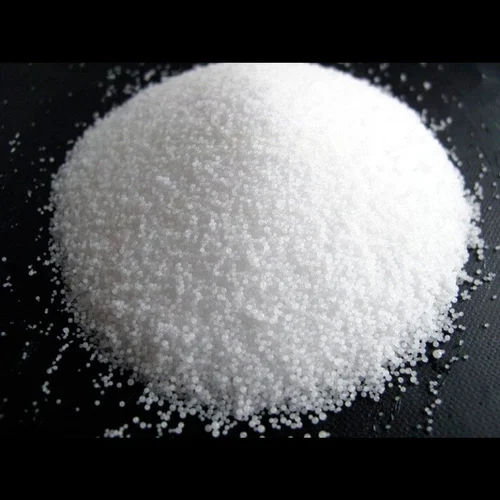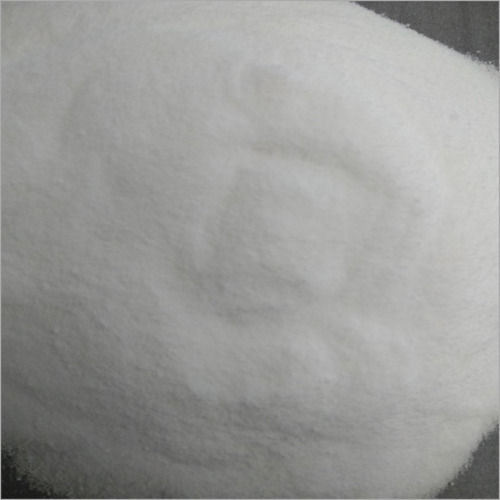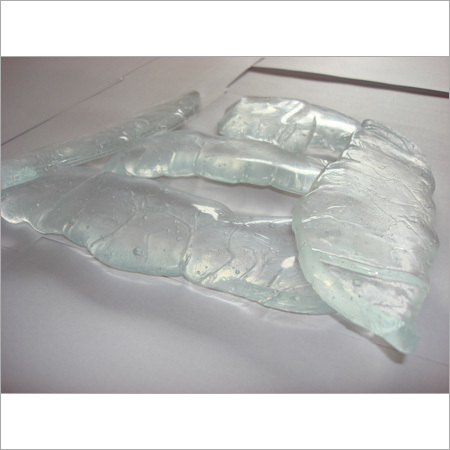

Potassium Silicate Powder
150 आईएनआर/Kilograms
उत्पाद विवरण:
X
पोटेशियम सिलिकेट पाउडर मूल्य और मात्रा
- किलोग्राम/किलोग्राम
- 1
- , किलोग्राम/किलोग्राम
पोटेशियम सिलिकेट पाउडर व्यापार सूचना
- कैश ऑन डिलीवरी (COD), कैश इन एडवांस (CID), चेक, कैश एडवांस (CA)
- 1 हफ़्ता
- Yes
- एक निश्चित मूल्य सीमा के भीतर, मुफ्त नमूने उपलब्ध हैं
- ऑस्ट्रेलिया, मिडल ईस्ट, अफ्रीका, एशिया, पूर्वी यूरोप
- ऑल इंडिया
उत्पाद विवरण
The Potassium Silicate Powder is optimal quality powder that is a source of potassium and silica. The powder is broadly used in fertilizers. It plays a significant role in metabolic processes of plants. These powders can also helps in proper functioning of plant cells. This chemical compound is processed using excellent grade chemical compound and processing methods under the supervision of our experts. They are also checked on various parameters by our quality analysts to ensure its purity prior to dispatch. Further, they maintain viable yields, nutrients and have accurate composition.
Our Standard Grade of Potassium Silicate Powder is as below:
Potassium Silicate Powder Properties:
1. Solubility: Potassium silicate is soluble in water, and its solubility increases with higher temperatures. The solution formed by dissolving potassium silicate in water is alkaline.
2. Alkalinity: Potassium silicate solutions are alkaline in nature, which makes them useful in applications where an alkaline environment is required.
3. Adhesive Properties: Potassium silicate can act as a binder and adhesive in various materials, such as in the production of refractory materials and foundry molds.
4. Fire Resistance: The use of potassium silicate can enhance the fire resistance of certain materials, making it valuable in applications where fire protection is important.
5. Cement and Concrete Additive: It is used as an additive in cement and concrete formulations to improve durability and strength. The alkaline nature of potassium silicate contributes to the formation of a silica gel that can strengthen the structure.
6. Corrosion Inhibition: Potassium silicate can provide corrosion protection for metals by forming a protective layer on the surface.
7. Admixture in Coatings: It is used as an admixture in various coatings, paints, and sealants to improve their durability, adhesion, and resistance to environmental conditions.
8. Electrical Insulation: Potassium silicate is used in the production of electrical insulation materials due to its ability to withstand high temperatures.
9. Fertilizer Additive: In agriculture, potassium silicate is sometimes used as a source of potassium and silicon for plants. It can enhance plant resistance to diseases and improve their overall health.
10. Waterglass: Potassium silicate is often referred to as waterglass, especially when in liquid form. Waterglass has been historically used for various applications, including preserving eggs and as a binder in the manufacturing of refractory materials.
Applications of Potassium Silicate Powder:
1. Cement and Concrete Additive: Potassium silicate is used as an additive in cement and concrete formulations to enhance the strength, durability, and fire resistance of the materials. It contributes to the formation of a silica gel that strengthens the structure.
2. Refractory Materials: In the production of refractory materials, potassium silicate acts as a binder, providing cohesion to the refractory mix. It helps maintain the shape and integrity of the materials under high temperatures.
3. Foundry Molds and Cores: Potassium silicate is utilized in foundry applications for making molds and cores. It serves as a binder for molding sand, providing the necessary strength to withstand the casting process.
4. Corrosion Protection: Potassium silicate can be used to provide corrosion protection for metals. It forms a protective layer on the metal surface, reducing its susceptibility to corrosion.
5. Adhesives and Sealants: The adhesive properties of potassium silicate make it suitable for use in certain adhesives and sealants, especially those requiring heat resistance and durability.
6. Fireproofing Materials: Due to its fire-resistant properties, potassium silicate is employed in the production of fireproofing materials. It enhances the fire resistance of coatings and materials.
7. Electrical Insulation: In the electrical industry, potassium silicate is used in the manufacturing of electrical insulation materials. Its ability to withstand high temperatures makes it suitable for such applications.
8. Agriculture: Potassium silicate is used in agriculture as a source of potassium and silicon for plants. It can enhance plant resistance to diseases, improve nutrient uptake, and contribute to overall plant health.
9. Coatings and Paints: It is used as an admixture in coatings and paints to improve adhesion, durability, and resistance to environmental conditions.
10. Water Treatment: Potassium silicate can be used in water treatment processes for various purposes, including corrosion inhibition and stabilization of water quality.
11. Textile Industry: In the textile industry, potassium silicate can be used as a flame retardant for fabrics.
12. Oil and Gas Industry: Potassium silicate may find applications in the oil and gas industry, such as in well drilling fluids or cementing operations.
Potassium Silicate Powder FAQ:
Q. What is Potassium Silicate Powder?
Ans: Potassium silicate powder is a chemical compound containing potassium oxide (K2O) and silicon dioxide (SiO2). It is commonly used in various industrial applications due to its unique properties.
Q. What are the Properties of Potassium Silicate Powder?
Ans: Key properties include solubility in water, alkalinity, adhesive properties, fire resistance, corrosion inhibition, and its role as a binder in various materials.
Q. What is the Solubility of Potassium Silicate Powder?
Ans: Potassium silicate is soluble in water, and its solubility increases with higher temperatures.
Q. What are the Main Applications of Potassium Silicate Powder?
Ans: It is used in cement and concrete, refractory materials, foundry molds, corrosion protection, adhesives, sealants, fireproofing materials, electrical insulation, agriculture, coatings, paints, water treatment, and more.
Q. How is Potassium Silicate Used in Agriculture?
Ans: Potassium silicate is used as a source of potassium and silicon for plants, enhancing resistance to diseases and improving overall plant health.
Q. Can Potassium Silicate Powder be Used in Coatings and Paints?
Ans: Yes, it can be used as an admixture in coatings and paints to improve adhesion, durability, and resistance to environmental conditions.
Q. Is Potassium Silicate Powder Flame Retardant?
Ans: While not a traditional flame retardant, potassium silicate can enhance the fire resistance of materials and is sometimes used in flame-retardant applications.
Q. How Does Potassium Silicate Contribute to Corrosion Protection?
Ans: Potassium silicate can form a protective layer on metal surfaces, reducing their susceptibility to corrosion.
Q. Is Potassium Silicate Used in the Oil and Gas Industry?
Ans: It may find applications in the oil and gas industry, such as in well drilling fluids or cementing operations.
Q. Can Potassium Silicate Powder be Used in Water Treatment?
Ans: Yes, it can be used in water treatment processes for purposes like corrosion inhibition and stabilization of water quality.
Q. Is Potassium Silicate Safe for Plants?
Ans: Yes, potassium silicate is generally considered safe for plants and is used in agriculture to provide essential nutrients.
Q. How Should Potassium Silicate Powder be Stored?
Ans: It should be stored in a cool, dry place away from incompatible materials. Proper ventilation and sealing containers are advisable.
Q. Can Potassium Silicate Powder be Harmful?
Ans: While generally considered safe, prolonged exposure or ingestion may have potential health risks. Users should follow safety guidelines provided by manufacturers.
Q. Where Can I Purchase Potassium Silicate Powder?
Ans: It can be purchased from chemical suppliers, industrial suppliers, or online platforms that specialize in chemical products.
Q. What Precautions Should be Taken When Handling Potassium Silicate Powder?
Ans: Users should wear appropriate protective gear, follow safety data sheet (SDS) instructions, and ensure proper ventilation when handling potassium silicate powder.
Tell us about your requirement

Price: Â
Quantity
Select Unit
- 50
- 100
- 200
- 250
- 500
- 1000+
Additional detail
मोबाइल number
Email







